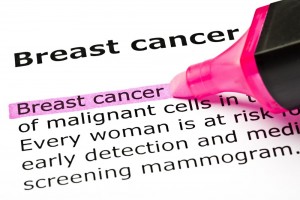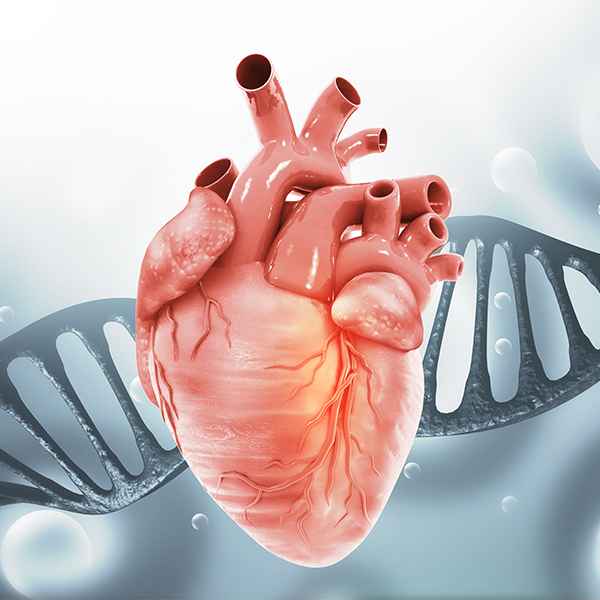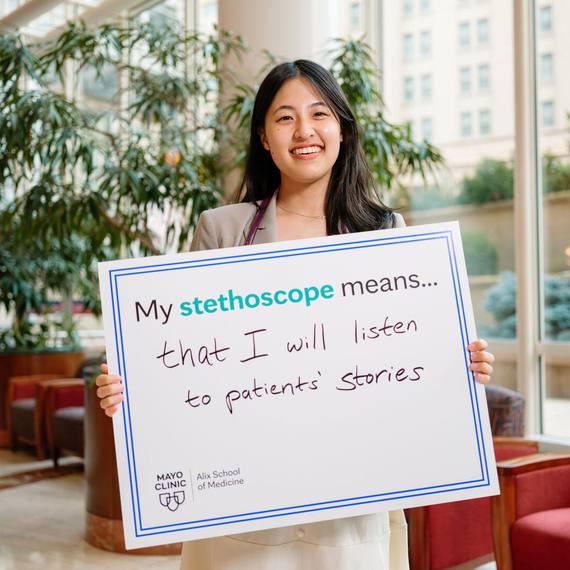SCOTTSDALE, Ariz. — Could blocking a testosterone receptor lead to a new way to treat an aggressive form of breast cancer? That's a question researchers at Mayo Clinic in Arizona and the Translational Genomics Research Institute (TGen) are exploring. Preliminary results of a Mayo Clinic — TGen collaborative study shows the testosterone receptor may be a potential target to attack in treating triple negative breast cancer (TNBC).

VIDEO ALERT: Click here to watch Dr. Barbara Pockaj explain the study.
Lead researcher Barbara Pockaj, M.D., a surgical oncologist at Mayo Clinic in Arizona will present the results of the study at the 65th annual Society of Surgical Oncology conference on March 23 in Orlando, Fla.
TNBC is highly aggressive and affects approximately 10 to 20 percent of breast cancer patients. The disease is characterized by larger, faster-growing tumors than other types of breast cancer and has limited treatment options.
Unlike other forms of breast cancer in which treatments are tailored to specifically target hormone receptors such as estrogen and progesterone or the HER-2 proteins that promote the growth and spread of cancer cells, triple negative cancer cells do not possess markers for estrogen, progesterone or HER-2, Dr. Pockaj says. There are no targeted therapies for TNBC, just chemotherapy, she says.
Researchers at Mayo Clinic and TGen say that could change if the androgen (testosterone) receptor shows potential as a therapeutic target.
"The goal of the study was to define what may be fueling TNBC, thereby identifying new potential options for effective targeted treatment," says co-lead researcher Heather Cunliffe, Ph.D., Associate Professor and head of TGen's breast and ovarian cancer research unit. "The team discovered that the androgen receptor is expressed in a significant proportion of these tumors, and moreover, the androgen-receptive positive tumors shared a unique clinical behavior."
Researchers found 22 percent of the patients with TNBC had the androgen receptor in their tumors.
"These cancers appeared in women who were older and there was a higher likelihood of the cancer spreading to the lymph nodes. Even though the women with androgen-receptor positive TNBC had more aggressive cancer to start, their survival was no different than patients with TNBC whose cancers did not possess the androgen receptor," Dr. Pockaj says. "Importantly, while all normal breast tissue had androgen receptors, it was lost in the majority of patients with TNBC. Our data shows us that there is a definitive group of patients who may be sensitive to treatment directed against the androgen receptor."
While further research with a larger number of patients is needed to define clinical implications of androgen receptor positive TNBC, Dr. Cunliffe says this study provides important insights.
An important next step of the research will be to determine how the androgen receptor functions in TNBC.
"We will look at all the genes within the cancer cells from each patient using genomic approaches.
This way we can find ways to manipulate the cancer cell which hopefully will translate into new treatment strategies for the women with TNBC," Dr. Pockaj says.
The study was supported by a seed grant from the joint Mayo Clinic-TGen collaborative research program.
About The Translational Genomics Research Institute
The Translational Genomics Research Institute (TGen) is a Phoenix, Arizona-based non-profit organization dedicated to conducting groundbreaking research with life changing results. Research at TGen is focused on helping patients with diseases such as cancer, neurological disorders and diabetes. TGen is on the cutting edge of translational research where investigators are able to unravel the genetic components of common and complex diseases. Working with collaborators in the scientific and medical communities, TGen believes it can make a substantial contribution to the efficiency and effectiveness of the translational process.
Media Contact: Julie Janovsky-Mason, Public Affairs, 480-301-4222
Steve Yozwiak, TGen, 602-343-8704, syozwiak@tgen.org







